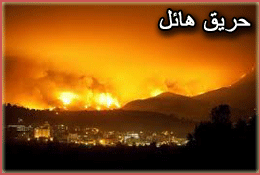-
azeem2000 saysFri 3rd Dec 10@08:17 pmWeird timing with the huge fire in Haifa right now.
-
I have a fairly random question. Is there in Arabic an equivalent to the English prefix "re"? As in rethink, redial, review etc?
-
Well, we use a complete word for that, we say (i3aadat إعادة) before the word, like (redial) is (i3aatad 6alab إعادة طلب), (rearrange) is (i3aadat tan6'eem إعادة تنظيم), (re-establish) is (i3aadat inshaa2 إعادة إنشاء) ...
Hope that is clear. -
Let me share what I know regarding Hexagonmoon’s question on the equivalent of ‘re’ before noun / verb / adjective, with the perspective of a raw beginner like me.
First, know these two words formed from the root ع و د .
إعادة (i3aadah) = repetition (noun)
أعاد \ يعيد (a3aada / yu3eed ) = to repeat, to redo (Form 4 Hollow verb)
Second, know some adverbs signifying repetition, like مرّة أخرى (marrat u7’raa), ثانية(thaaniyatan), etc.
And finally, know the verb / noun / adjective to which you want to prefix ‘re’. For example, let us take the root ر ت ب
رتّب \ يرتّب (rattaba / yurattib) = to arrange (Form 2 verb)
ترتيب (tarteeb) = arrangement (noun)
مرتّب (murattab) = arranged (adjective)
** ‘re’ before a noun: Construct إضافة (i9’aafah) using إعادة before the noun.
Rearrangement = إعادة ترتيب (i3aadat tarteeb)
Examples given by Ehab follow this pattern, I think.
** ‘re’ before a verb: Method 1. Conjugateأعاد before the definite noun. Method 2. Use adverbs of repetition AFTER THE VERB.
to rearrange = يعيد الترتيب or يرتّب ثانية or يرتّب مرّة أخرى
** ‘re’ before an adjective: Use adverbs of repetition AFTER THE ADJECTIVE.
Rearranged = مرتّب ثانية
If there is any any mistake in what I wrote, please correct me.
-
thanks for you'r input vinod - very interesting - good way to beter understand the language-
-
Excellent detailed answer Vinod. I can't see anything wrong of what you wrote. Thanks for the share.
-
@Ehab and plop - Delighted to read your comments of appreciation. Thanks a lot.
-
Thanks for all the good comments! Coincidentally, we'll be dealing with عادة in an upcoming lesson so stay tuned...
-
Oops, meant إعادة of course. Just noticed the typo. Oof.
-
I very much liked the lucid discussion of the passive tense here, including the contextual comments about its use in the Arabic news.
I think dummira, though discussed at length, was not actually defined in the discussion. I mention this because such oversight(?) has happened a few times in the podcasts (e.g., the lesson on tanning at the beach - "bald" -uslan, I believe, was not defined) and it is a bit confusing. Mentioning a definition also helps slow the podcast down a bit, which is generally helpful. (I do not mean to imply that every word need be defined, of course.) GREAT lesson, though! -
Also, surely you know that there was a great fire in Chicago in the late 19th century, later attributed to a cow kicking a gas lamp. Probably an accident, but I guess you never know. The fire basically destroyed all housing stock in Chicago.
-
@ chazyouwin
The passive isn't a tense, Charles. It's a voice. There's an excellent article on the passive voice in the English version of Wikipedia. I'll explain "voice", "tense", "mood" and "case" in more detail as soon as I have some spare time.
Best wishes
Desmond -
On the subject of re- doing something. I noticed the following headline on the BBC today ...
مصر ستعيد فتح شواطئها السياحية على البحر الاحمر
which I translate as "Egypt will re-open the tourist beaches on the Red Sea".
Lower Intermediate - Huge fire
| December 3rd, 2010 | 1 comment |
Breaking news, a huge fire has spread in Chicago killing two people. Was it accidental or criminally motivated? Sierra & Elias teach you how to talk about a tragic event in today's Arabic MSA lesson.
 |
 MP3 Download MP3 Download
 PDF Transcript PDF Transcript
|
 Audio Transcript Audio Transcript Exercise Exercise |
|
| Basic | Premium | |
|---|---|---|
Join the Discussion

Random Word
سلام |
|

Advertisement


